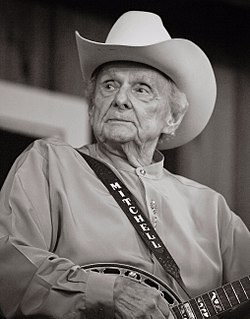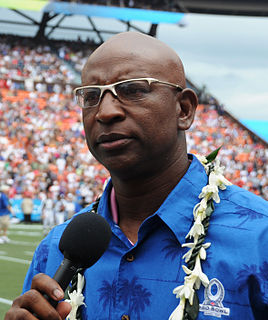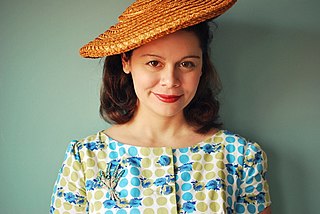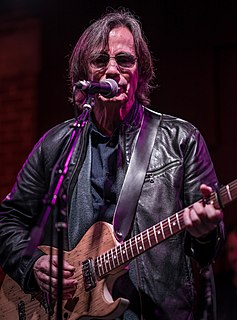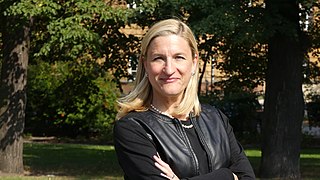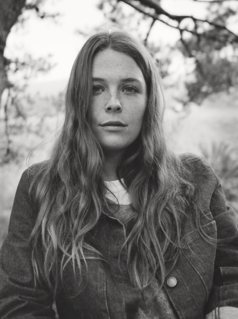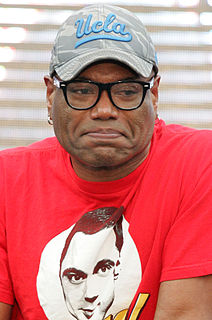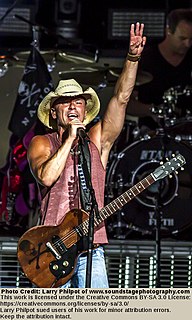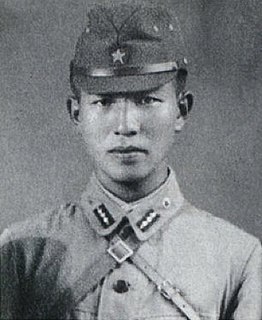A Quote by Ralph Stanley
My first banjo? My mother's sister, my aunt, lived about a mile from where we did, and she raised some hogs. And she had - her - the hog - the mother - they called the mother a sow - of a hog. And she had some pigs. Well, the pigs were real pretty, and I was going to high school and I was taking agriculture in school. And I sort of got a notion that I'd like to do that, raise some hogs. And so my aunt had this old banjo, and my mother told me, said, which do you want, the pig or a banjo? And each one of them's $5 each. I said, I'll just take the banjo.
Related Quotes
I was raised by my great-great aunt. I was adopted within our family. My mother had me when she was, I think, 15, 16. They tried to get her to have an abortion and she refused. So, my 'mama' adopted me, which was really her great aunt, which was really my great-great aunt, who was named Viola Dickerson. I was told that my mother was my sister.
I wrote a post about wanting to buy a banjo - a $300 banjo, which is a lot of money, and I don't play instruments; I don't know anything about music. I like music, and I like banjos, and I think I probably heard Steve Martin playing, and I said, 'I could do that.' And I said to my husband, I said, 'Ben, can I buy a banjo?' And he's like, 'No.'
The idea of the book ["The Japanese Lover"] came in a conversation that I had with a friend walking in the streets of New York. We were talking about our mothers, and I was telling her how old my mother was, and she was telling me about her mother. Her mother was Jewish, and she said that she was in a retirement home and that she had had a friend for 40 years that was a Japanese gardener. This person had been very important in my friend's upbringing.
...fact was she knew more about them than she knew about herself, having never had the map to discover what she was like. Could she sing? (Was it nice to hear when she did?) Was she pretty? Was she a good friend? Could she have been a loving mother? A faithful wife? Have I got a sister and does she favor me? If my mother knew me would she like me? (140)
One day when I was fourteen, I told Charlie that I hated Mother. “Don’t hate her, Jo,” he told me. “Feel sorry for her. She’s not near as smart as you. She wasn’t born with your compass, so she wanders around, bumping into all sorts of walls. That’s sad.” I understood what he meant, and it made me see Mother differently. But wasn’t there some sort of rule that said parents had to be smarter than their kids? It didn’t seem fair.
I had always assumed we had an unspoken understanding about these things: that she didn't really mean I was a failure, and I really meant I would try to respect her opinions more. But listening to Auntie Lin tonight reminds me once agian: My mother and I never really understood one another. We translated each other's meanings and I seemed to hear less than what was said, while my mother heard more. No doubt she told Auntie Lin I was going back to school to get a doctorate.
A lot of people say that Eleanor Roosevelt wasn't a good mother. And there are two pieces to that story. One is, when they were very young, she was not a good mother. She was an unhappy mother. She was an unhappy wife. She had never known what it was to be a good mother. She didn't have a good mother of her own. And so there's a kind of parenting that doesn't happen.
I first heard the banjo on the Beverly Hillbillies, and from then on I was banjo-conscious. But I didn't actually get one until my grandfather gave me one, almost by mistake. He knew I was playing a little bit of guitar. He saw a banjo at a flea market and bought it. I took it home with me and just never put it down. I was fifteen.
She liked being reminded of butterflies. She remembered being six or seven and crying over the fates of the butterflies in her yard after learning that they lived for only a few days. Her mother had comforted her and told her not to be sad for the butterflies, that just because their lives were short didn't mean they were tragic. Watching them flying in the warm sun among the daisies in their garden, her mother had said to her, see, they have a beautiful life. Alice liked remembering that.
